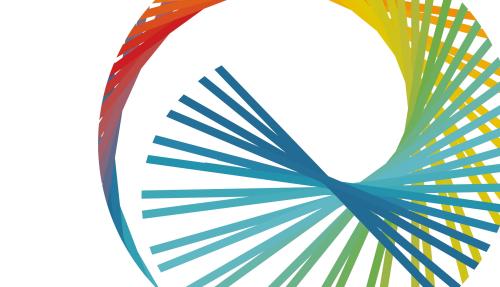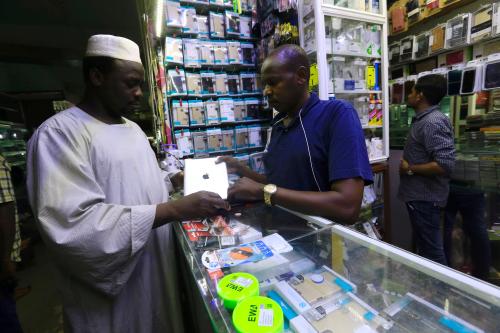Below is a viewpoint from Chapter 4 of the Foresight Africa 2018 report, which explores six overarching themes that provide opportunities for Africa to overcome its obstacles and spur inclusive growth. Read the full chapter on African structural transformation here.
The year 2017 has seen a commitment to furthering Africa’s demographic dividend through inclusive access to productive resources and opportunities for all to achieve sustainable development.[1] As leaders grapple with striking the balance between modernizing economies, meeting skills needs, and achieving the demographic dividend, even more attention should be given to closing gender gaps in education, skills, and productive jobs.
We enter into 2018 with a renewed international commitment to the advancement of female entrepreneurship with the launching of the Women Entrepreneurs Finance Initiative (We-Fi) by the World Bank, which aims to leverage more than $1 billion in commercial and international financial institution financing for women-owned small and medium enterprises.[2]
Top-down approaches may run the risk of taking the sense of agency and ownership of women’s empowerment from its ultimate owners-the very women these programs are trying to promote.
As we continue to support efforts like this, two outstanding questions need to be answered to guide investments to successfully advance women entrepreneurship and economic empowerment. 1) What exactly are we promoting (overall economic productivity, entrepreneurship, inclusion, or all)? And 2) what is the planning horizon (long term vs short term)? The answer to these should guide the skills investment strategy.
A persistent concern for policymakers, researchers, and development partners has been that female entrepreneurs are primarily engaged in low-productivity services and industrial sectors, running mostly small- and medium-size enterprises (SMEs).[3] So far, assisting SMEs through improving their access to loans, business trainings, and networking are the most common form of interventions to promote women’s entrepreneurship and economic empowerment. However, results have been mixed.
Micro-interventions have proven ineffective.
Research has shown that micro-interventions to provide access to credit and business trainings for the poor have limited effectiveness in bringing major changes in women’s economic empowerment.[4] This calls for more integrated approaches to address women’s simultaneous constraints, macro-level interventions, advocacy and collective action, and to promote government accountability to the gender equity cause in and of itself.
Better cooperation between the stakeholder-led and bottom-up initiatives is vital.
Recent initiatives to improve women’s access to markets and finance include government procurement for women-owned SMEs, gender budgeting, gender mainstreaming (audit) and quotas, and third-party guarantees by regional development banks.
Government and stakeholder-led interventions can be important tools in promoting accountability to achieve gender-oriented goals by encouraging evidence-based interventions and instilling competition among various stakeholders in generating, seeking, and promoting innovative solutions. These programs’ success hinges, however, on the validity of the assumption that decisionmaking bodies know what works best in promoting gender equality. Moreover, top-down approaches may run the risk of taking the sense of agency and ownership of women’s empowerment from its ultimate owners—the very women these programs are trying to promote.[5]
Women as change agents and part of the collective action
One remedy would be embracing a more pluralistic approach, including promoting and creating a generation of successful women entrepreneurs who are also social entrepreneurs (i.e., making women play leadership, by example, roles in promoting women’s economic empowerment) and paying closer attention to the delivery methods of gender programming.
Increasing awareness about the importance of women’s empowerment and promoting female entrepreneurship is a welcome trend in the debate about inclusion and economic development more broadly. It is important to maintain this momentum and to monitor the implementation of women’s empowerment and entrepreneurship programs for early lessons on successes as well as on areas for improvement.
Footnotes
- The African Union for instance has chosen the theme of 2017 to be “Harnessing the demographic dividend and investment in Africa’s youth,” with a special focus on employment and entrepreneurship, skills development as well as the rights and empowerment of women and youth.
- Fourteen donor countries already committed over $340 million to the initiative as of its launch in October 2017.
- See the AfDB, OECD, and UNDP (2017) report African Economic Outlook 2017: Entrepreneurship and Industrialization, available at: http://www.africaneconomicoutlook.org/en/theme/Entrepreneurship-and-industrialisation.
- The World Bank’s October 2017 African Development Bank, Organization for Economic Co-operation and Development, United Nations Development Program “African Economic Outlook 2016: Sustainable Cities and Structural Transformation” report, for instance, shows how universal access to foundational skills/primary education coupled with improved maternal and child nutrition could contribute to overall productivity of countries and close the skills gap of Africa’s workforce. Read the full report here: https://openknowledge.worldbank.org/handle/10986/28483.
- Psychology, aspiration, and behavioral economics literature for instance points towards the key role ownership and sense of control play in success. For instance, see Andrea Cornwall (2016), “Women’s Empowerment: What Works?” Journal of International Development 28, 342–359, and Stefan Dercon et al. (2014), “The Future in Mind: Aspirations and Forward-Looking Behavior in Rural Ethiopia,” CSAE Working Paper Series 2014-16. Oxford, U.K.: Centre for the Study of African Economies, University of Oxford.







Commentary
Foresight Africa viewpoint – Commitment to women’s entrepreneurship and economic empowerment: Why 2018 will be a defining year
January 17, 2018